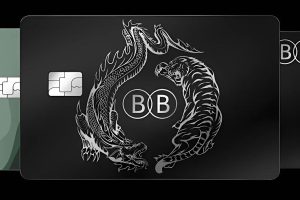Employees are the backbones of organizations. Whether it is a company of 1 or 100, each individual impacts overall productivity and function. This makes good employees an organization’s best asset. It also means that hiring is a big deal. How you hire can make or break your organization.
However, the hiring process can be costly and time-consuming, but hiring the wrong person can bring massive setbacks in team productivity. Statistics show that over 70% of recruiters have hired unsuitable candidates before and that bad hires cost approximately $15,000.
So how can you ensure that the next person to join your team will make it stronger?
David Ogilvy said, “If each of us hires people who are smaller than we are, we shall become a company of dwarfs. But if each of us hires people who are bigger than we are, we shall become a company of giants.”
This post will delve into what you can do as a recruiter to hire the best candidates to join your team.
Why do organizations hire the wrong people?
Firstly, let’s unpack why organizations hire the wrong candidates in the first place. Some of the most common mistakes that recruiters make during the hiring process are:
-
Improper screening
One of the biggest mistakes recruiters make when hiring is cutting corners when screening candidates. Basing judgments off of cover letters and resumes solely is a problematic approach to screening. This allows candidates who misrepresent their abilities and resume spammers to waste valuable resources. It also limits the ability of a recruitment team to find the right candidate.
-
Rushed hiring
Pressures to fill vacancies like existing employees being unable to keep up with workloads and expenses growing over time can lead to rushed hiring.
However, recruiters should never rush the hiring process.
Rushing the hiring process can lead to hiring unsuitable candidates that might not fit in with the company culture or have the required skill set to perform a role well. This can cause major internal issues such as stress on a team and lost productivity.
-
Failing to recognize the importance of attitude
It may seem tempting to hire the candidate with the best hard skills, it is vital to recognize the value of a candidate’s attitude. Not only does attitude impact how a candidate fits into an organization’s culture significantly, but it also directly relates to performance and productivity.
Thankfully, recruiters can avoid these mistakes.
How you can hire the right candidates for the position
Following are five ways to hire the right candidate.
Have clear needs and expectations
During the hiring process, one of the first things recruiters need to do is establish a real need to hire and then figure out precisely what the role requires. Communicating what the role entails and looks like effectively allows candidates to decide whether they are prepared to take it on.
While transparency here can lead to a higher volume of serious applicants applying, recruiters must remember to refrain from listing requirements that aren’t necessary. Doing so can lead to suitable candidates, especially women, being deterred from applying and thinking that they are underqualified.
Reduce the candidate pool
With technology facilitating the job application process, it is now easier than ever to apply for positions. Combined with the increased level of job seekers that covid-19 has created, the number of candidates applying for roles increases.
As interviewing is resource-taxing, it often isn’t possible or economical to interview everyone who applies.
One way that recruiters can decide who the best candidates to go through to interviews are is by screening. Using methods such as contacting candidates listed references or using pre-employment testing like this critical thinking test are just some practical screening examples.
Get to know each candidate
Once recruiters have screened out unsuitable candidates, they should get to know each candidate as much as possible. Understanding candidates’ motivations, attitudes, and aspirations are essential when determining suitability. These factors contribute to overall productivity, job satisfaction, and employee retention.
Before the interview, recruiters can do this by using any resources that a candidate has provided. Such as looking over their cover letter, resume, provided social accounts like Linkedin and contacting references.
During the interview, employers can get to know candidates further by asking questions. Considering the limited time that interviews provide, it is essential not to ask anything that could be answered by the information a candidate has already provided. Instead, employers and panelists should make a point to ask questions specific to learning more about each candidate. These should always look like professional questions to avoid violating employment laws or regulations.
Conduct a skills assessment
Directly related to screening, by introducing a skills assessment into the early stages of the hiring process, employers can objectively compare candidates’ abilities and tap into the top talent available.
As many candidates provide falsified resumes and cover letters or recycle the same resumes without adjusting them for roles – resume spammers, it can be difficult to differentiate who is qualified for a position. Skill-based pre-employment assessments significantly reduce expenses and the risks of hiring unsuitable candidates.
As these assessments can be customized for any skill set, employers need to research vendors or solution providers to find their organization’s best assessment option. These assessments can also be used for internal hiring and assessing skills for management positions. Interviews and other aspects should also be factors for who employers hire.
Assess the culture fit of candidates
Culture fit is where a prediction is made about how a candidate would culturally fit an organization. This is a major factor that should be considered when hiring the right candidate.
Similar to skills assessments, pre-employment tests can also assess culture fit. However, employers can also make judgments from interpersonal communication. To do this, interviewers need to have a strong understanding of the existing company culture. Hiring managers also recommend that multiple existing employees interact with candidates to form judgments about whether they would be a good fit or not.












